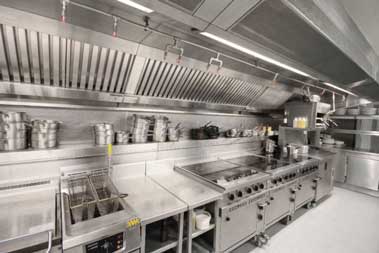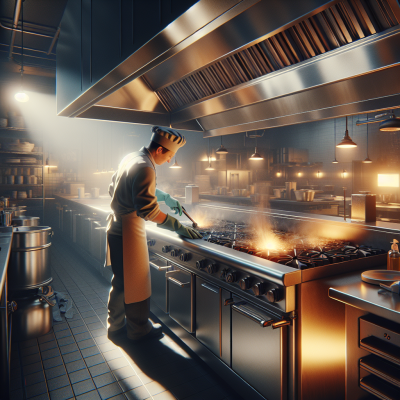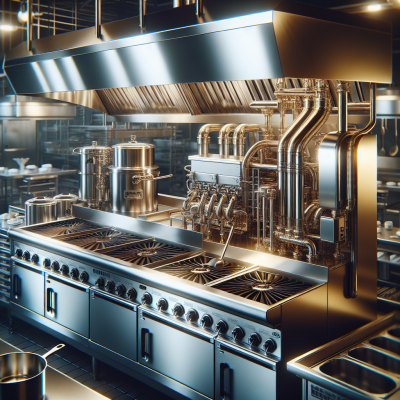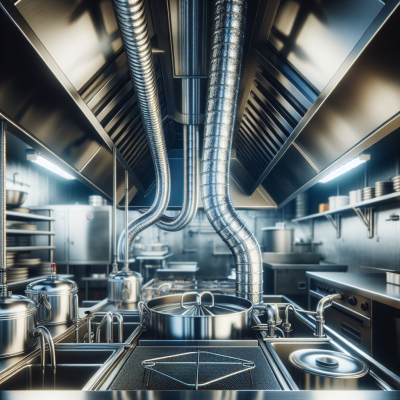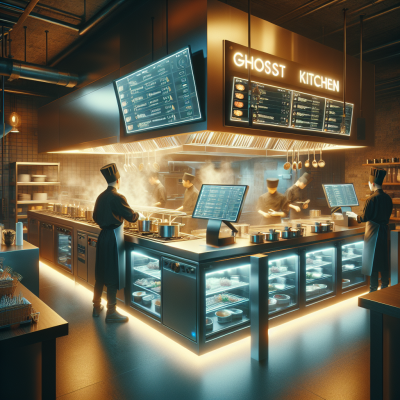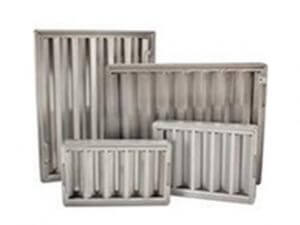 Are you cleaning your hood filters often? Or are you waiting until your hood cleaning company does it for you?
Are you cleaning your hood filters often? Or are you waiting until your hood cleaning company does it for you?
First thing you need to know: Some hood cleaning companies don’t really clean your filters. They simply wipe them and set them to the side while they clean the hood, duct, and updraft system.
Our team always cleans filters but if you’re not periodically cleaning them yourself, you’re not really keeping your system efficient. Months of neglecting your filters can cause them to get a massive grease build-up and the grease can harden into something that is the consistency of rubber.
A Terrible Example:
We were to do a hood cleaning in an Italian restaurant in the suburbs The owner insisted that his hoods only needed cleaning once or twice a year and he never had his staff clean the filters.
When we arrive onsite for a hood cleaning, one of the first things we do is to pull down all the filters and move them to an area for washing. When we pulled the filters in this particular restaurant, we noticed that the filters weighed roughly three times what they would normally weigh.
During cleaning, huge chunks of hardened grease were being pushed out the .hood filters. We nicknamed them ‘grease worms’ because of their shape. We were hitting them with heated high-pressure streams of water and they wouldn’t break down.. It took FOUR HOURS to just clean the hood filters. And we had a pile of these grease worms to show the restaurant owner.
Since the filters were no longer efficient, the inside of the hood was nasty with a layer of grease comparable to what you’d find up in the duct. And the grease containment system had been overwhelmed on the roof. Roofing materials were heavily damaged and we spent several hours cleaning the roof as best we could.
Price to clean: $1500 every six months
A Better Way:
One of our clients is a burger chain that we contracted to clean the hoods for 27 of their stores in the area. Unlike the fast-food burger places, this client did not have its own buildings. Instead, they had their stores in stip malls.
They had a hard-fast rule that the restaurant kitchen and dining room were completely torn down and cleaned every Thursday night after closing. Part of that was to pull down all the hood filters and dip clean them in the sink.
Whenever we cleaned their hoods, the filters only needed simple degreasing and polishing. And because of this, their ducts were easier to clean.
Price to clean: $400 every three months.
Can Employees Clean Commercial Hood Filters Themselves?
Absolutely YES. And they should be doing it weekly. A weekly cleaning in commercial sinks would take less than 30 minutes for a dozen filters.
The Real Reasons Your Staff Should Clean Your Hood Filters
The hood filters are a restaurant’s first line of defense when it comes to grease management and ensuring the longevity of its exhaust ventilation system. Without them, the building is susceptible to fires, and excessive amounts of smoke and grease fumes could fill the air, causing serious health risks. Therefore, it is important to keep these essential hood exhaust system components clean and fully functional.
Commercial hood filters are made from high-quality, durable materials such as stainless steel, galvanized steel, or aluminum, but these materials can be easily caked with grease over time that must be removed.
Commercial hood filters can be cleaned by hand, in a commercial dishwasher, or a soak tank. Each method has its pros and cons regarding time, efficiency, and the ultimate best clean.
Dishwasher method:
If you decide to use a commercial dishwasher, remove all exterior residue from the filter before placing it in your appliance and running it at its highest temperature with soap and water. Avoid harsh, corrosive chemicals like bleach or certain cleaners.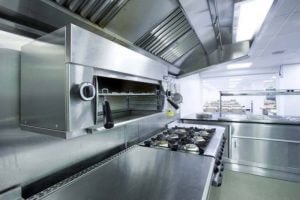
This method is great for a quick clean during the day but still requires a little manual labor in removing exterior residue and could damage your commercial dishwasher if used incorrectly. Using the wrong chemicals could also damage your commercial hood filters, leaving them susceptible to rust.
Soak Tank Method:
Using a soak tank is by far the easiest method, but it is also the most time-consuming. For this process, fill your soak tank with water and a metal-safe, non-corrosive cleaner. Then, all you have to do is place the filters in the soak tank and leave them there overnight. The next morning, the filters can be removed, briefly rinsed off with water, and then reinstalled for the day.
Hand Wash Hood Filter Method:
Hand washing is the method that requires the most manual labor, but it is arguably the best way to ensure every nook and cranny of your commercial hood filters is clean and free of residue or grease.
For this method, fill your commercial kitchen sink with hot water and add either a limited amount of metal-safe degreaser or use soap. If you’re using the degreaser, allow the filters to sit in the liquid for 30-minutes.
Afterward, regardless of which liquid the filters have been soaking in, you can now hand scrub them with a non-abrasive scrubber or sponge. Again, refrain from using any harsh chemicals like bleach for this process.
Summary
Exhaust hood systems are extensive, expensive, and highly specialized pieces of equipment that typically require professionals to maintain and clean. However, there are some exceptions.
The commercial hood filters are a few components of an exhaust hood system that employees can clean themselves without professional assistance.
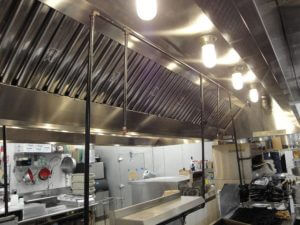 It is not permissible for employees or owners to clean other areas such as the hood duct system, the exhaust hood, exhaust fans, or other common elements. It is also advisable that professionals replace damaged or broken components within your commercial exhaust hood system, such as belts.
It is not permissible for employees or owners to clean other areas such as the hood duct system, the exhaust hood, exhaust fans, or other common elements. It is also advisable that professionals replace damaged or broken components within your commercial exhaust hood system, such as belts.
If a restaurant does not allow professional hood cleaners to conduct this work, the business might receive heavy fines or face mandatory closure.
Additionally, kitchens with clean commercial hood filters that aren’t caked in grease and other residues are typically cooler, which is essential to employee comfort considering the high-heat appliances that function for hours on end in this space.
Comments
“Cleaning your commercial hood filters is a process that shouldn’t take employees more than 45 minutes to an hour but is crucial to the integrity of your exhaust hood system. Grease buildup inside a commercial hood duct system is one of the major leading causes of fires in restaurants despite being entirely avoidable through daily or even weekly cleaning.”
“Don’t wait until your commercial hood filters are covered in pounds of grease and other residues before you decide to start cleaning them. Add these crucial pieces of equipment to the restaurant’s list of daily cleaning tasks to ensure they are sparkling at the beginning of every service and absolutely no risk to your business, employees, or highly appreciated patrons.”
“Commercial kitchens are especially susceptible to fire because of the kitchen’s hectic environment and the presence of multiple fire hazards..”
I”f you work at a commercial kitchen and are wondering how to clean range hood filters, you’ve come to the right article.”



